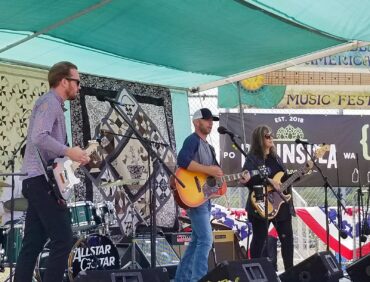
In case you haven’t already snagged tickets to Glastonbury, Lollapalooza, Coachella or Montreux this year, there’s still time to find that special venue that will not only add to your quality of life but may in some cases change it forever. Music festivals — annual one-to six-day (or longer) special events — bring in millions of dollars of annual revenue to host communities. In the process, they increase brand visibility for the artists and venues, create obligatory traffic jams (it’s a given) and raise an infectious high energy and lasting memories along the way.

These festivals also cater to a wide range of tastes, cultures, geographies and demographics. In essence, they reflect the broad diversity of Americans who attend. And those markets may be local, regional, national and beyond. Crossing state lines and international time zones to attend one is common among festivalgoers. They go where the musical muse takes them.
Here on the Kitsap and Olympic Peninsulas, three major annual festivals attract crowds from several hundred to thousands depending on day, acts and schedule. Musical tastes cross the spectrum from Americana (often described as an amalgam of styles to include folk, country, blue grass, gospel, blues and R&B) featured at Olalla Americana Music Festival, classical and chamber at the Olympic Music Festival and finally, the most extensive, cross-genre showcase of talent at the Juan de Fuca Festival.
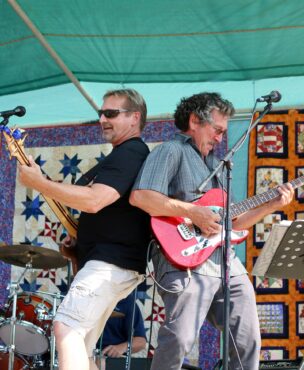
For a veteran festivalgoer, attending can take a full year of planning, starting the moment the current fest ends. For these true aficionados, there are tickets to snag, accommodations to secure, specific performers to see and friends to share everything with. It’s an experience, after all, albeit one worth an estimated $30 billion worldwide in 2023 alone, with a healthy annual growth rate of over 5%.
Festivalgoers tend to fall in the millennial age range, 18-35, a promoter’s golden goose for target audiences. Think pop, rock, hip-hop, electronica, alternative, R&B, metal and jam to begin with. But because of the wide range of musical options, including the more traditional genres like classical, folk, country, Americana, bluegrass, blues and jazz, that age range morphs to middle-aged professionals, baby boomers and even the Silent Generation. In other words, there really is something for everyone in the mix.
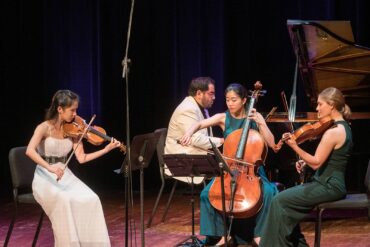
The festival experience as an attendee has been written about widely since the days of Woodstock. More recently, fellow writer Callie Ahlgrim, who has attended dozens of music fests over the years, recalls that the majority of her experiences have involved “long lines, expensive food, sticky weather and sore feet.” In her words, they are “equal parts fun and fatigue” and often rely on the real-time vibe of fellow audience members.
For some, the scene becomes the experience, taking precedence over the music. Because of that, she issues a friendly warning to festival novices to make sure they choose wisely before making the time and financial commitment required to attend.
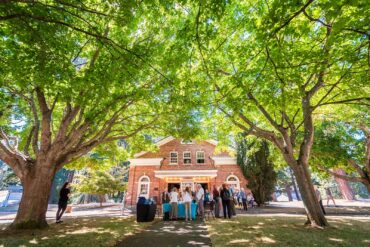
“Look at the venue and the lineup,” Ahlgrim advises. “Make sure it’s a good fit.”
Carol Thornburgh, a longtime Bainbridge resident, has been attending Olympic Music Festival for over two decades. Because of her ongoing volunteer involvement, her relationship has broadened from a festivalgoer, granting her close access to festival organizers and talent. She touts “the incredibly high quality of musicians” featured and considers the whole experience a bargain for the ticket price.
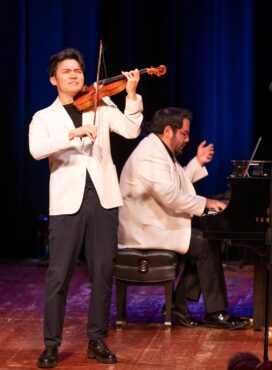
What to Expect
Someone who has attended festivals in several Western states, including Washington, Nevada and Arizona, in addition to Mexico and Canada, is Ari Saltarelli, a martial arts instructor from Seattle. When asked what can make or break a festival experience, she mentions the lineup of artists as the top draw, with things like concessions a close second.
“Believe it or not, just having water stations available for refilling your container can be a huge plus,” Saltarelli says.
In addition, festival security has become a major selling point for attendees. Saltarelli stopped attending one of Washington’s largest festivals a few years ago “due to lax security” and gives top scores to the Canadian fests she’s attended, which have a strong security process and presence she says ensure “a worry-free vibe.”
And what about those ticket prices? Overpricing can kneecap festivals building their market quicker than Radiohead’s “I Will” — coincidentally, one of the shortest songs in music repertoire. Some fests choose to make individual tickets for specific performers, which can often be had for a debatable, yet to most a reasonable fee of less than $100.
But for the series or for a multiday festival pass, expect to shell out $200-$300 at a minimum. And plan on taking out a loan or selling your firstborn to come up with the $1,000 and up fee for VIP passes that may include premium parking, preferred entry, lounges, food and beverage and other added celeb-level amenities. Salterelli budgets around $2,000-$3,000 per festival she attends every summer, starting with a festival pass that can run “as high as $600” per person.
For the artists, it can be, as the saying goes, a slog. It’s often the performers who take worrisome financial risks by signing on for festivals that may not have earned the reputation, or stability, of a SXSW (South by Southwest) or Ultra, for example. It’s a huge leap of faith for all involved, but if the response is positive and audiences follow, it’s musical magic in the making.
Generating a variety of income streams is crucial for promoters. Although festival passes and tickets remain the bulk of their revenue substantial income is also generated through tiered seating and VIP packages, sponsorships, merchandise, concession fees, program and event advertising and parking. Newer sources added over the last few years include amenities like charging stations, Wi-Fi access, licensing fees and subscription fees for exclusive content and special media perks. In addition to the tickets themselves, this ancillary income can be the tipping point in determining the festival’s long-term success.
Building brand strategy, duration, ticket pricing, lineup, venue and logistics can be daunting. They’re often required to commit for the long haul, a multiyear run, as it’s the one-offs that typically lose money and become a faint memory by failing to return the following year.
In the end, it’s often the word of mouth from the attendees that ensures a lasting success. Social media makes or breaks festivals and promoters have learned the advantage of providing a festival experience that includes a plethora of over-the-top visuals to be enthusiastically captured and shared on TikTok, YouTube, Instagram, Snapchat or Facebook.
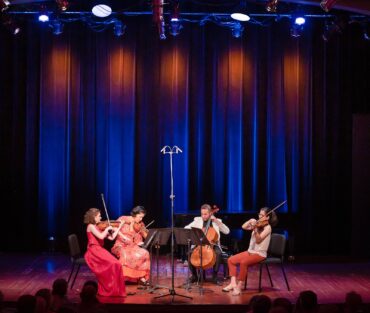
The festival experience may not be for everyone, but for many, these events provide an immersive, unique and perhaps an intoxicating and memorable moment in time. The allure is simple. Where else can you connect with a crowd that can range from an intimate few to tens of thousands of music lovers, all listening to a variety of favorite bands, performers, ensembles, orchestras, soloists or acapella groups in a unique, often highly desirable, outdoor venue? And for (often) one ticket price, with all your needs generously covered in one location?
As Saltarelli puts it, “They’re my happy place. I can’t recall a bad experience at a music festival. Every single one is so different, so unique.” She recalls with great joy the range of event atmosphere from “serene” to “wild.” But in the end, she says, “We all seem to have this amazing time. They’re so welcoming.”
The music festival experience can test friendships or add to them, elevate or frustrate, inspire and uplift. They can be highbrow or lowbrow, table service or picnic blanket, muddy fields or grassy knolls. But it’s all about the vibe, the music and the camaraderie felt by being around like-minded people.
Consider attending one this summer — ’tis the season when the music never ends.
Major Olympic/Kitsap Peninsula Music Festivals
- Juan de Fuca Festival
Sponsored by The Juan de Fuca Foundation for the Arts
Port Angeles, May 24-26, 2024
jffa.org/festival
360-457-5411 - Olympic Music Festival
Port Townsend, Aug. 10 – Sept. 8, 2024
olympicmusicfestival.org
360-385-9699 - Olalla Americana Music Festival
Olalla, Aug. 17, 2024
olallaamericana.com
253-857-5650
For a full and complete resource of venues and fests, check out Music Festival Wizard at musicfestivalwizard.com.



























